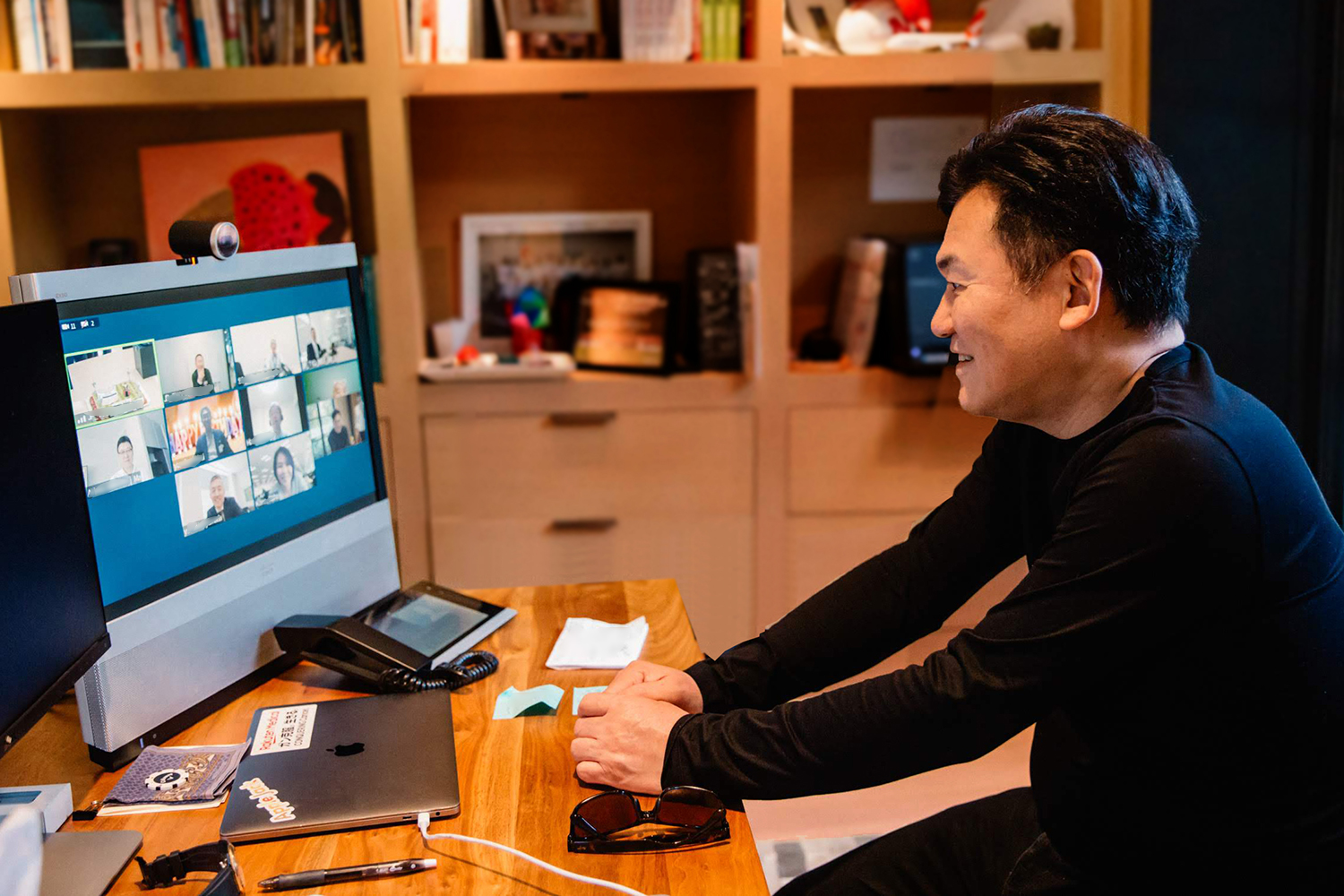I’ve always been a big proponent of coming into the office to work. I believe the right office setting can be a strong catalyst for creativity. I even designed our own headquarters to promote collaborative, in-person work. There are few walls in the HQ and none in my office. Whether I’m in Rakuten Crimson House in Tokyo or Crimson House West in San Mateo, California, I do my best to be visible in the office and circulate with my team. I love the give and take that comes with office conversation and the opportunity to bounce ideas off colleagues. From the day I founded my business, I have always thought of the office as the cradle of collaboration.
Since the office has quickly become a tool we can only use in very special circumstances, I’ve had to rethink my approach to work. We have all been agile in coming up with short-term measures to keep our employees safe and restrict the spread of COVID-19. More recently, we’ve started brainstorming as a team on what the “new normal” will look like, mid-term and long-term.
For now, I’d like to offer advice to the executives, managers and team leaders still adjusting to the new work from home reality – especially those who, like me, prefer a physical office space.
Here are my suggestions:
Bring the team together regularly
Set a morning and afternoon huddle for your team. It’s true that many meetings can be replaced by emails, but in a time of mass remote work, a quick online “face-to-face” meeting is an important touch point for workers. We do not have the familiar motivation of seeing others working around us to keep us on task. We cannot instinctively pick up on the mood and shifting priorities of the day while working at home. We are cut off from all that data. For that reason, our teams are aiming to gather online for huddles at the beginning and end of their day. This is a check-in to keep us all on track, but it also serves as an important connection. Many of us miss our work friends and feel the loss of the camaraderie of daily work life. A huddle provides instruction, guidance and a reminder that our friends are still out there.
Recast rather than cancel
We all have all seen important events and efforts on the calendar threatened by the crisis. We must look for ways to reimagine them rather than canceling them outright. For example, this is the time of year when Rakuten generally welcomes hundreds of new recruits to our offices in Japan. This year, we can’t conduct our regular welcome ceremony or training sessions. So we moved that entire experience online. We need our new employees and we need to train them to do their jobs. If we can’t do it in our offices, we are finding a way to forge ahead using technology.
The new normal: Calibrating the in-office experience at home
Space is a premium commodity at home just like it is in the office. Supporting people in setting up a space that feels dedicated to work while also respecting their home environment is something that requires some creative thinking. Many of our employees already had desktops set up for secure use from home, but we’ve reinforced the importance of using privacy filters on the screen and earphones as additional physical measures. We’ve also been proactive about letting everyone know that working from home can mean unexpected guests on video calls, from children to pets and delivery callers, and that is simply a part of our “new normal.”
Encourage movement
We are all missing our regular routines. Even on days when we didn’t go to the gym, many of us were staying active through daily commutes or even just navigating the office during the day. It’s hard to get that same level of physical activity in when working from home, so we need to take exercise breaks to preserve our physical and mental health. We’ve been streaming short exercise and wellness videos on internal channels, and I’ve been hosting optional morning sessions with the executive team that include a brief wakeup workout and a meditation session. As a manager, be sure to communicate this to your teams so that they understand exercise is part of their home office to-do list. Emphasize the importance of remaining healthy and sharp during a crisis.
We all experience crises together, but teams will look to their leaders for guidance on how to behave and what to prioritize. If you had systems in your office to help your team do its best work, you must look for ways to recreate that in a home office arrangement. A crisis requires our response, our leadership and a keen focus on empowering human connections.


